The Steroids vs HGH saga rages on with fitness enthusiasts and researchers around the globe. These two compounds demonstrate different mode of action on muscle in experimental studies. Androgen receptors are the target of anabolic steroids via direct binding.
Human growth hormones cause the body to grow naturally through the intricate system of processes. In order to translate these findings into science-based recommendations, it is important to understand these basic differences and helps researchers in decision-making with regard to timing and efficacy.
Each compound has its own advantage and disadvantage that we need to carefully consider. The safety profiles of these two well-known performance improving agents are quite different.
Explore HGH from Direct Peptides Canada, a regenerative peptide that supports lean muscle growth, fat metabolism, and natural tissue repair.
Anabolic steroids mimic testosterone effects by binding directly to muscle tissue receptors. This creates rapid protein synthesis and nitrogen retention. HGH peptides take a different approach entirely.
They stimulate the liver to produce insulin-like growth factor-1 (IGF-1). This hormone then promotes cellular growth and repair processes. The steroid pathway shows immediate effects within days. HGH requires weeks to demonstrate visible changes, making timing a crucial factor when researchers ask which builds muscle faster.
Studies indicate that HGH mechanisms prove more sustainable long-term. Direct Peptides offers various HGH peptides for legitimate applications worldwide. These mechanisms create different safety considerations.
Explore Peptide Supplies at Direct Peptides Canada for all your reconstitution requirements.
IGF-1 production represents the key advantage of HGH over steroids. This growth factor enhances muscle fiber development naturally. It also improves bone density and tissue repair mechanisms. IGF-1 levels remain elevated for hours after HGH administration.
This creates a sustained anabolic environment throughout the day. Studies show IGF-1 promotes lean muscle mass without excessive water retention. The compound also supports connective tissue health better than steroids.
Research indicates IGF-1 may have neuroprotective benefits as well. This makes HGH particularly valuable for comprehensive applications. IGF-1’s benefits raise questions about overall risk profiles.
Discover IGF-1 from Direct Peptides Canada, a powerful peptide hormone that enhances muscle fiber development, cellular repair, and connective tissue health.
Side effect profiles differ dramatically between Steroids vs HGH in controlled settings. Anabolic steroids commonly cause liver stress and cardiovascular strain with prolonged use. They also suppress natural testosterone production significantly.
HGH side effects typically remain milder and more reversible. Common issues include joint discomfort and temporary insulin sensitivity changes. Water retention occurs but usually resolves quickly.
Subjects report fewer mood fluctuations with HGH protocols. The hormonal disruption from steroids often requires months of recovery after discontinuation. HGH allows for more predictable outcomes with manageable effects. Understanding mild versus severe effects matters for planning.
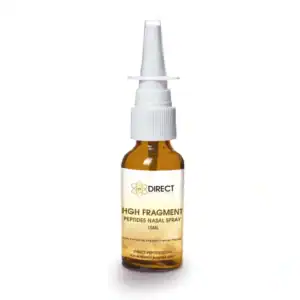 Health risks vary considerably between these compounds in controlled studies. Steroids may cause significant organ stress with prolonged or high-dose use, though many effects reverse when protocols end appropriately.
Health risks vary considerably between these compounds in controlled studies. Steroids may cause significant organ stress with prolonged or high-dose use, though many effects reverse when protocols end appropriately.
Cardiovascular complications include increased blood pressure and cholesterol changes. Liver enzyme elevation appears frequently in steroid applications. HGH risks center around glucose metabolism and potential growth-related changes.
Acromegaly-like symptoms may develop with excessive dosing protocols. However, these effects typically reverse when studies conclude properly. Guidelines emphasize proper dosing to minimize complications.
Most HGH studies report more favorable safety margins compared to steroid investigations, though both require careful monitoring. Risk assessment directly impacts recovery protocols.
Recovery enhancement shows distinct patterns between Steroids vs HGH applications. Steroids accelerate protein synthesis for faster muscle repair initially. However, this comes with inflammatory modulation that may affect natural healing processes.
HGH promotes comprehensive recovery through multiple pathways over longer periods. It enhances sleep quality, which improves natural recovery processes significantly. Collagen synthesis increases notably with HGH protocols.
This benefits tendon and ligament repair beyond just muscle tissue. Evidence suggests HGH creates sustainable recovery improvements rather than temporary accelerations. Many ask about combining both compounds, though this requires careful protocol design and enhanced monitoring for safety. Recovery improvements depend on underlying repair mechanisms.
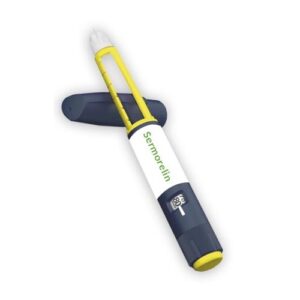 Muscle tissue repair mechanisms reveal important differences in applications. Steroids primarily increase muscle fiber size through enhanced protein accumulation and synthesis. This hypertrophy response occurs rapidly but focuses mainly on existing muscle structures.
Muscle tissue repair mechanisms reveal important differences in applications. Steroids primarily increase muscle fiber size through enhanced protein accumulation and synthesis. This hypertrophy response occurs rapidly but focuses mainly on existing muscle structures.
HGH promotes satellite cell activation and supports both hypertrophy and hyperplasia processes. It also enhances mitochondrial function for improved cellular energy production. Cellular regeneration improves with HGH through multiple growth factor pathways.
Research indicates HGH supports microscopic repair more comprehensively than steroids alone. The tissue quality improvements with HGH often provide longer-lasting benefits in controlled studies. Tissue repair differences affect testing protocols.
Detection methods present different challenges for Steroids vs HGH testing protocols. Anabolic steroids leave metabolite traces for weeks or months in biological samples. Gas chromatography easily identifies most steroid compounds and their derivatives.
HGH proves much harder to detect using standard testing methods. It requires sophisticated immunoassays and mass spectrometry techniques for accurate identification. Endogenous HGH production makes detection extremely difficult since natural levels vary.
The detection window for HGH spans only 24-48 hours typically. Advanced isoform testing may extend this slightly in specialized laboratories. Facilities must consider these analytical limitations when designing studies and protocols. Detection challenges influence regulatory approaches.
Legal status varies significantly between these compounds globally. Anabolic steroids face strict regulations in most countries worldwide. They require controlled substance classifications and prescription monitoring systems.
HGH maintains prescription medication status but with fewer administrative restrictions. Applications for HGH often receive easier approval processes from regulatory bodies. Many countries allow importation of HGH for legitimate purposes with proper documentation.
Direct Peptides ensures compliance with international shipping regulations for researchers. Users should verify local laws before ordering either compound. Documentation requirements typically prove less complex for HGH studies than steroid protocols. Legal frameworks impact budgets significantly.
Costs differ substantially between Steroids vs HGH procurement and implementation. Pharmaceutical-grade steroids require expensive licensing and regulatory monitoring systems. Safety protocols add significant overhead to steroid studies including specialized equipment.
HGH peptides often cost less per dose from reputable suppliers with proper credentials. Shipping restrictions may increase steroid acquisition costs internationally due to regulatory complexity. Storage requirements for HGH prove simpler and more cost-effective long-term.
Analytical testing costs vary but HGH detection requires specialized equipment. Insurance coverage may favor HGH studies due to perceived lower risk profiles. Overall project budgets typically favor HGH over steroid investigations, though total study duration affects final costs since HGH requires longer observation periods.
| Factor | Anabolic Steroids | HGH Peptides |
|---|---|---|
| Mechanism | Direct receptor binding | IGF-1 stimulation |
| Results Timeline | 3-7 days | 2-4 weeks |
| Side Effects | Moderate to severe, mostly reversible | Mild, typically reversible |
| Detection | Easy, long window | Difficult, short window |
| Legal Status | Heavily regulated | Less restricted |
| Cost | High (short-term) | Moderate (long-term) |
Applications require careful consideration of safety, effectiveness, and timing expectations. HGH peptides demonstrate superior safety margins with fewer serious complications in controlled studies.
The natural mechanism of action provides sustainable results without major hormonal disruption. Recovery benefits extend beyond simple muscle growth to comprehensive tissue repair over time.
While steroids offer rapid initial results, the associated monitoring requirements often outweigh benefits in controlled settings. Direct Peptides provides high-quality HGH peptides for legitimate applications worldwide, ensuring compliance and purity standards.
The scientific evidence increasingly favors HGH as the safer, more sustainable option for muscle building applications, especially when long-term outcomes matter more than immediate speed of results.
[1] Ng FM, Sun J, Sharma L, Libinaka R, Jiang WJ, Gianello R. Metabolic studies of a synthetic lipolytic domain (AOD9604) of human growth hormone. Horm Res. 2000;53(6):274-8.
[2] Heffernan MA, Thorburn AW, Fam B, Summers R, Conway-Campbell B, Waters MJ, Ng FM. Increase of fat oxidation and weight loss in obese mice caused by chronic treatment with human growth hormone or a modified C-terminal fragment. Int J Obes Relat Metab Disord. 2001 Oct;25(10):1442-9.
[3] Raun K, Hansen BS, Johansen NL, Thøgersen H, Madsen K, Ankersen M, Andersen PH. Ipamorelin, the first selective growth hormone secretagogue. Eur J Endocrinol. 1998 Nov;139(5):552-61.
[4] Walker RF. Sermorelin: a better approach to management of adult-onset growth hormone insufficiency? Clin Interv Aging. 2006;1(4):307-8.
Discover the full range of Peptide Vials with 99% purity from Direct Peptides, a trusted global supplier of premium research peptides.
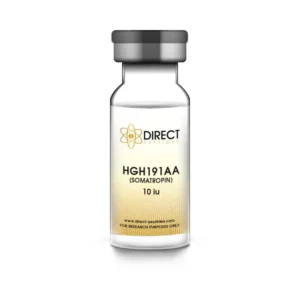
HGH191AA Peptide Vial (Somatropin)
£37.79 – £44.59Price range: £37.79 through £44.59 Select options This product has multiple variants. The options may be chosen on the product page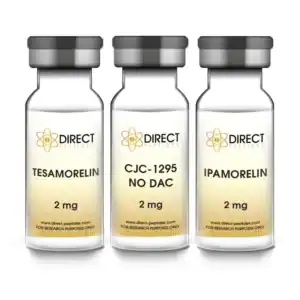
Ipamorelin Tesamorelin CJC-1295 no DAC
£49.73 – £58.71Price range: £49.73 through £58.71 Select options This product has multiple variants. The options may be chosen on the product page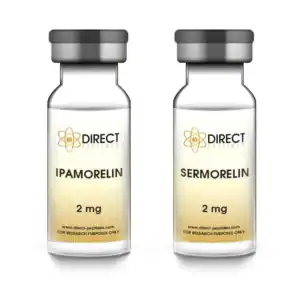
Ipamorelin Sermorelin Peptide Stack
£27.20 – £36.18Price range: £27.20 through £36.18 Select options This product has multiple variants. The options may be chosen on the product page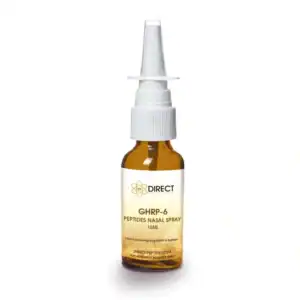
GHRP-6 Nasal Spray
£18.54 – £32.08Price range: £18.54 through £32.08 Select options This product has multiple variants. The options may be chosen on the product pageALL CONTENT AND PRODUCT INFORMATION AVAILABLE ON THIS WEBSITE IS FOR EDUCATIONAL PURPOSES ONLY.
DISCLAIMER: These products are intended solely as a research chemical only. This classification allows for their use only for research development and laboratory studies. The information available on our Canada Direct Peptides website: https://direct-peptides.com is provided for educational purposes only. These products are not for human or animal use or consumption in any manner. Handling of these products should be limited to suitably qualified professionals. They are not to be classified as a drug, food, cosmetic, or medicinal product and must not be mislabelled or used as such.